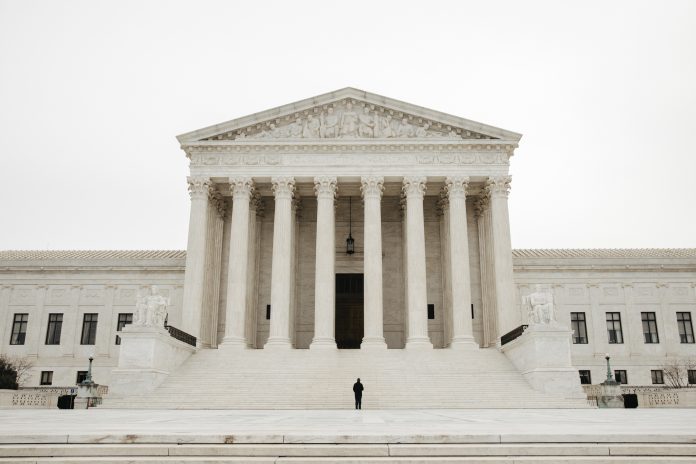By Jack Birle
(The Center Square) – The Senate passed the bipartisan infrastructure bill after months of negotiations, setting the stage for the bill to be debated in the House.
With Vice President Kamala Harris presiding over the vote, the bill easily passed through the Senate with a 69-30 vote. All 30 nay votes came from Republican senators.
The $1.2 trillion bill would fund improvements to roads, bridges, broadband internet, railways and other forms of infrastructure. The bill allocates approximately $550 billion in new spending toward infrastructure projects.
“It’s been a long and winding road but we have persisted and now we have arrived. There were many logs in our path, detours along the way, but the American people will now see the most robust injection of funds into infrastructure in decades,” said Senate Majority Leader Chuck Schumer, D-N.Y., on the Senate floor prior to the vote.
Despite a new report from the Congressional Budget Office which estimated the bill would add $256 billion to the deficit over a period of 10 years, Republican support for the bill remained strong. On Tuesday, 19 Republican senators, including Senate Minority Leader Mitch McConnell, R-Ky., voted to move the bill forward. McConnell spoke on the issues with the bill while still supporting it on the Senate floor Saturday.
“Like I have said before, I am quite confident that out of 100 United States senators, there are 100 of us who believe the bill is imperfect,” McConnell said. “This is a compromise product crafted by colleagues with big, principled differences, and…in a Senate with the narrowest possible split.”
One of the members of the initial bipartisan negotiating group, Sen. Mitt Romney, R-Utah, defended the bill, specifically after the Congressional Budget Office report.
“The Congressional Budget Office has scored about one half of it as being paid for under their rules,” he said. “The other half is also paid for by real dollars. Not the way CBO scores it under their rules but just as real. Sometimes, for instance, a pile of funding, a pile of cash, has been previously allocated and not used. And so it goes back to the treasury and the CBO says we can’t score that because it’s already been appropriated once.”
Some Republicans opposed the bill citing its high price tag and use of deficit spending, among other issues. Sen. Ron Johnson, R-Wis., voiced his disapproval of the bill in a statement Tuesday.
“We need to spend money on infrastructure. We also need to stop further mortgaging our children’s future. What’s so unfortunate about the infrastructure bill that just passed is we could have accomplished both goals,” Johnson said. “Instead, the bill’s supporters decided the public into thinking their bill was ‘paid for’ by using smoke-and-mirror gimmicks.”
The passing of this bill through the Senate is a major victory for the Biden administration, but the bill still has to pass through the House to make it to President Joe Biden’s desk.
As the infrastructure bill heads to the House, members of the bipartisan negotiating group are celebrating the victory. Sen. Kyrsten Sinema, D-Ariz., championed the bipartisan effort on a Senate floor speech Monday.
“What we have here today is what it looks like. When elected leaders set aside their differences, shut out the noise and distractions, and just focus on forging common ground around our shared values,” Sinema said. “This is what it looks like when elected leaders take a step toward healing our country’s divisions rather than feeding those very divisions.”
Speaker of the House Nancy Pelosi, D-Calif., has indicated she intends to wait for a proposed $3.5 trillion reconciliation package to pass the Senate before she will hold a vote on the infrastructure bill.
Schumer has stated he intends to have the $3.5 trillion reconciliation package passed through the Senate before it adjourns for August recess, which was originally scheduled to begin last Friday. Immediately after passing the bipartisan bill, Schumer had the Senate vote on moving the reconciliation package to debate, a vote which passed 50-49.
“Once again, congratulations to all of those who worked hard, so hard on this very significant and very important bill. And now we proceed to the second track,” Schumer said.
Originally published by The Center Square. Republished with permission.












Bad policy is just BAD policy, no matter how you try to “dress it up”…